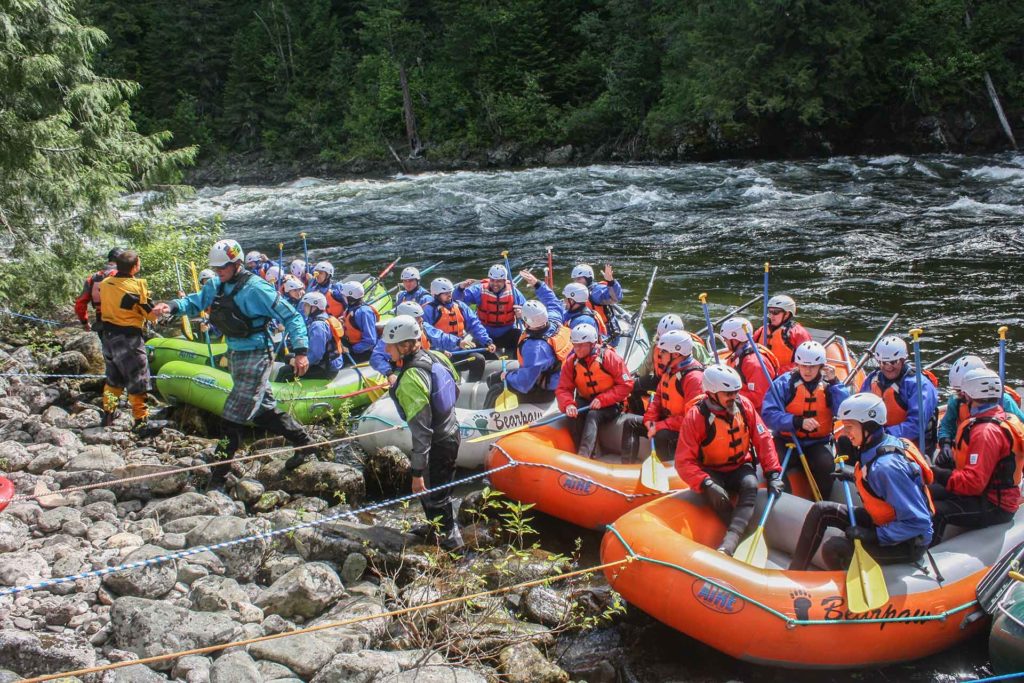River Etiquette

Rivers are a privilege. We are lucky enough to share these wild and beautiful places with one another, and treating the river and our fellow boaters with respect is necessary in order to keep these places wild and beautiful. Be knowledgeable about the Leave No Trace principles, the river-specific regulations, water levels, and basic river etiquette.
AT THE BOAT RAMP
- Designate a concentrated space for your boats and gear, and make room for other groups to use the boat ramp.
- Do not spread out across the entire put-in area or block the boat ramp with vehicles and trailers.
- Do not put a boat on the ramp until you’re ready to move with purpose to get the boat in the water.
AT CAMP
- Dial your gear. This includes all the required trash and human waste disposals, firepans and fire blankets, and food storage systems. These regulations can vary by river or seasonally.
- Know your campsites and plan ahead. Do NOT last-chance camp at an undeveloped site, and concentrate your use within the parameters of a developed camp.
- Be aware of microtrash! Food particles, wrappers, zip ties, etc. Microtrash destroys the quality of river camps and degrades the habitat and its species.
ON THE WATER
- If you come across another group on the water, sharing the space in a friendly manner matters. Whether it’s a nod or wave, or a quick chat about camps, rapids, the weather, whatever, it matters to be polite and welcoming out there.
- Look upstream before your group pulls out of an eddy. If there’s another group coming, it’s worth letting them pass and giving them space.
- Avoid fishing lines on other boats. That being said, avoid casting directly in front of a boat in the current.
- If you are passing another group, communicate with them and pass efficiently and in a calm stretch of water.
- If another group wants to pass you, it’s worth pulling into an eddy and letting them pass through efficiently, and in a calm stretch of water.
- If you come up on a risky scene, pull over and assess.
- If you are the risky scene, send one person upstream to signal to other boaters coming down to pull over and assess.
- Treat the river herself with ultimate respect.


